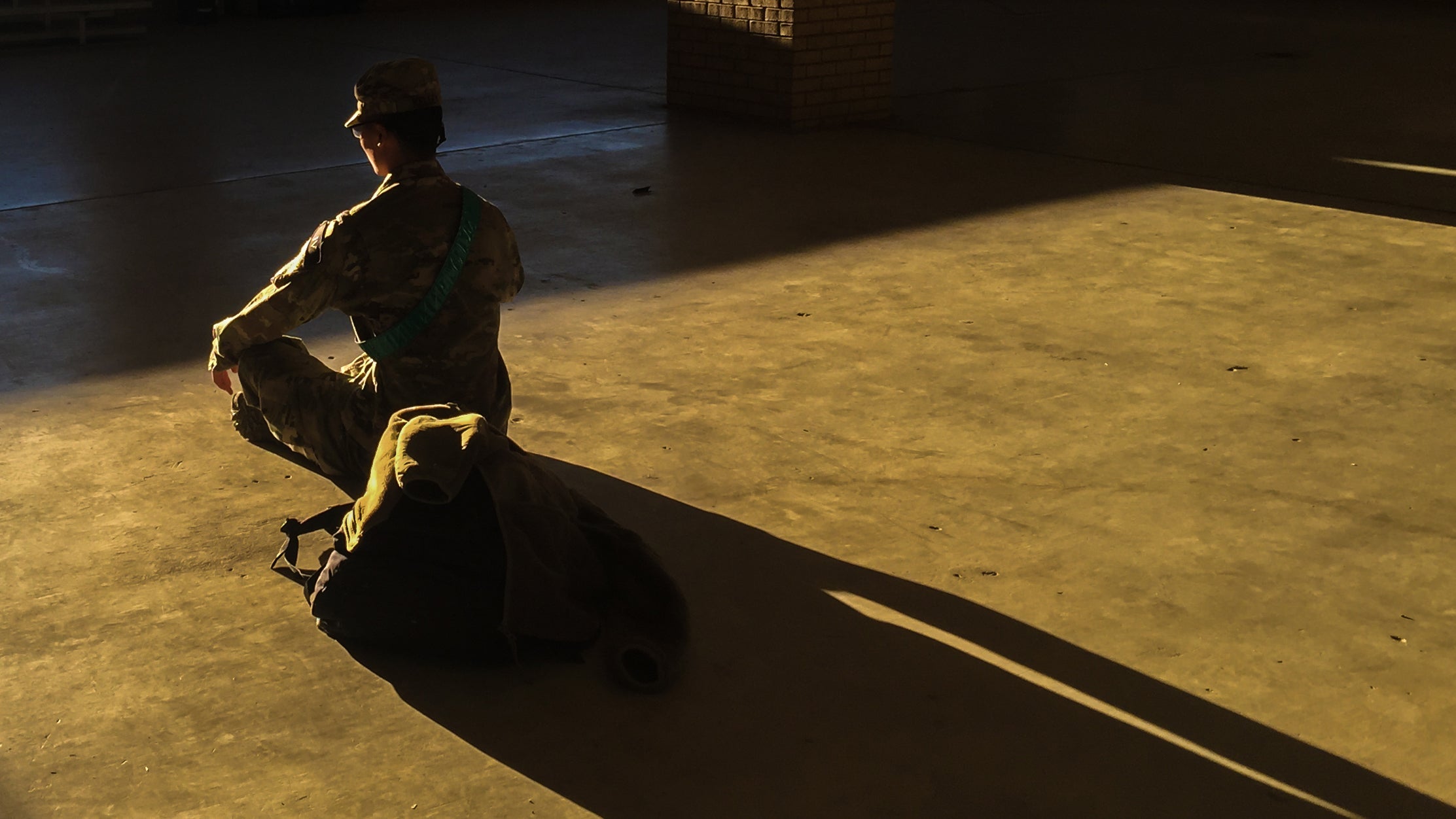Guard, Reserve Work to Improve Mental Health Care
Guard, Reserve Work to Improve Mental Health Care

The National Guard and Army Reserve are stepping up efforts to tackle the most pressing mental health care issues facing their soldiers.
Though there are more than 1 million reserve component personnel, and access to quality mental health care is a “high priority” for the Military Health System, “little is known about the quality of care that reserve component personnel receive or how their care compares to that of members of the active component,” a recent Rand Corp. study found.
Reserve component personnel, unlike active-duty personnel, balance their service with competing needs, including full-time civilian jobs or school. This puts them in a unique position, said Col. Melissa Mitravich, who was director of the Army Reserve’s Psychological Health Program for the past nine months and recently took command of the 2nd Medical Training Brigade.
“These are Army Reserve [soldiers] that support America and support our active-duty and our sister services, but … they also have to maintain a job, maintain their family, possibly go to school,” she said.
On top of the usual stressors, the COVID-19 pandemic has taken a toll on Guard members’ mental health, according to the National Guard Bureau’s Warrior Resilience and Fitness Division, which promotes well-being, resilience and suicide prevention.
“As citizen-warriors, we are all too familiar with the balance between Guard duty and civilian responsibilities,” according to a video on the division’s website. “In response to this pandemic, some have been called on to perform deeply challenging tasks, such as mortuary duties. We all took an oath to serve, but the human toll associated with a job of that magnitude is profound.”
The video encouraged Guard members to seek help. “Seeking support is more courageous than suffering in silence. It could save your life and the lives of those around you.”
The Rand study also found that while active-duty and reserve component troops have similar rates of post-traumatic stress immediately after a deployment, PTSD rates increased for deactivated reserve component personnel due to “greater non-combat stressors” like “competing demands and related interruptions in civilian work and family life.”
This year, the Army Reserve Psychological Health Program has had over 5,432 engagements with soldiers between January and August. It had 8,183 engagements with soldiers in all of 2020. It also has had more than 1,749 engagements with unit leaders through education briefings and consults, Mitravich said, which is already outpacing the 1,474 engagements in 2020.
Program staff also straddle citizen-soldier identities and are ready to tailor solutions to every soldier, Mitravich said.
“We are an Army Reserve-specific program, so all of our staff understand those specific issues and situations that soldiers encounter,” she said. “Because we know those soldiers have those unique stressors, we can tailor their needs to what they want and what they feel is the best course, and if they’re not sure, our mental health providers can … do a needs assessment.”
National Guard leaders “want to continue to expand … community partnerships” to improve mental health care access, Army Maj. Gen. Eric Little, director of manpower and personnel for the National Guard Bureau, said during an Oct. 1 media roundtable.
For Guard members living in more rural areas, telehealth has greatly expanded access to care, said Navy Rear Adm. Matthew Kleiman, director of the Warrior Resilience and Fitness Division.
“It's really critical that we understand what the local resources [are],” Kleiman said. “Telehealth is a big option for those that don't have anything within 50 to 100 miles of where they live. We've greatly expanded telehealth just last year alone.”
More than anything, Mitravich said, she wants soldiers and their leadership to know that seeking mental health care makes soldiers stronger. Soldiers often worry that seeking mental health care could affect their security clearance, but less than 1% of service members lose their clearance for a psychological issue alone, according to DoD data.
“Decreasing the stigma of mental health is such an important thing that has to be done, and that comes from the leaders being able to say, ‘Hey, it is okay to get behavioral health,’ ” Mitravich said. “Those that seek care are likely going to always keep their security clearance because they were honest, they got care that makes them more resilient and a better soldier, and people trust soldiers that are willing to take care of themselves.”

